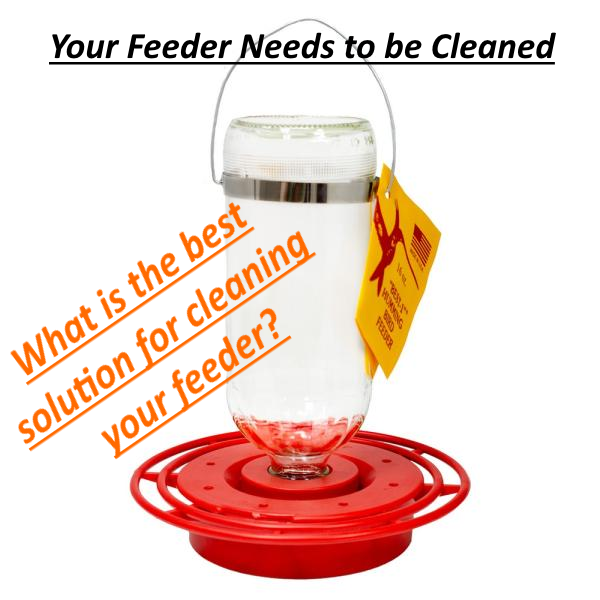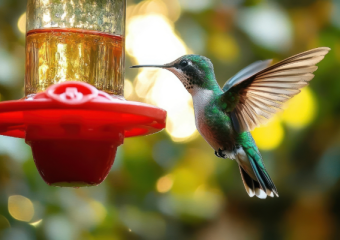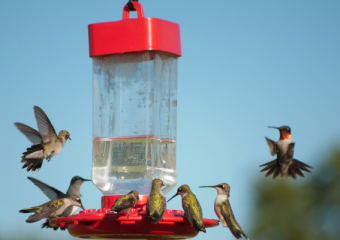Hummingbird Feeder Cleaning: Must-Know Effortless Tips

Hummingbird Nectar: Keeping Feeders Clean and Safe
Hummingbird “Hummer” nectar, a simple blend of sugar and water, holds the magical allure that brings these vibrant birds right to our windows. However, maintenance of their feeders is crucial. Without regular cleaning, this sweet solution can quickly deteriorate into a sticky mess, cloud over, or become a breeding ground for harmful bacteria and mold. So, what are the best solutions for keeping your hummingbird feeder pristine and safe?
Why Regular Cleaning is Essential
Before diving into cleaning solutions, it’s important to understand why regular maintenance is so vital. Hummers have incredibly fast metabolisms and a keen sensitivity to their food sources. Nectar that has begun to ferment or develop mold can be harmful to these tiny creatures. Moreover, a dirty feeder can discourage birds from returning, robbing you of the joy of observing them.
Common Cleaning Solutions for Hummingbird Feeders
There are several effective methods to ensure your hummingbird feeder remains clean and welcoming. Each cleaning agent – whether it’s bleach, vinegar, or baking soda – has its merit and application technique.
Using a 5% Bleach Solution
A 5% bleach solution is widely recommended for its efficacy in sanitizing and disinfecting feeders. To use this method, mix one part bleach with nine parts water. After emptying the feeder of any remaining nectar, submerge it in the bleach solution and allow it to soak for about an hour. This soak is crucial for killing any lingering bacteria or mold spores. Afterward, it’s imperative to rinse the feeder thoroughly with plenty of running water to ensure no residual bleach is left behind as it can be harmful to birds.
We know a lot of people are scared of using bleach because it is so powerful, but did you know bleach once diluted has a very short “half-life.” Here’s what Readers Digest has to say on the subject:
If you accidentally left some bleach on the feeder don’t worry too much, “The half-life of bleach once used is short, typically from a few hours to at most a day.”
The Natural Power of Vinegar
For those preferring a more natural approach, vinegar is a fantastic alternative. Its acidic nature makes it good at breaking down mold and bacteria. Create a cleaning solution with one part white vinegar to four parts water. Soak the feeder in this solution for a few hours, or better yet, overnight. After soaking, use a brush to scrub any difficult spots. Rinse it thoroughly with water to remove any vinegar traces before refilling with nectar.
Baking Soda: A Gentle Option
Baking soda is another natural cleaning agent that’s gentle yet effective. It’s particularly good for scrubbing without scratching the feeder. Make a paste using baking soda with a little water, and use this mixture to scrub the feeder thoroughly. It can help remove stubborn gunk build-ups without the harshness of bleach or the strong smell of vinegar. After scrubbing, as always, rinse the feeder well with water.
Recommended Practices for Feeder Maintenance
While all these solutions are effective, your choice might depend on your preferences or the condition of the feeder. However, some best practices will ensure your hummingbird visitors are safe and happy:
- Clean regularly: Clean the feeder at least once a week, and more frequently during hot weather when nectar spoils quicker.
- Rinse thoroughly: Whatever cleaning solution you choose, make sure to rinse the feeder thoroughly to ensure no harmful residues remain.
- Dry completely: Before refilling the feeder with nectar, make sure it’s completely dry to prevent dilution and quick spoilage of the new nectar.
- Check for damage: During cleaning, inspect the feeder for any cracks or damages that could harbor bacteria or injure the birds.
Conclusion
In conclusion, keeping your hummingbird feeder clean is not only a matter of hygiene but also of health for these delightful birds. Whether you choose a bleach solution, vinegar, or baking soda, each method has its benefits. Personally, using vinegar for regular cleans and reverting to bleach for monthly deep cleans can offer a balance between natural and powerful cleaning. With these practices, you can enjoy the vivid spectacle of hummingbirds without risking their health or turning them away.




